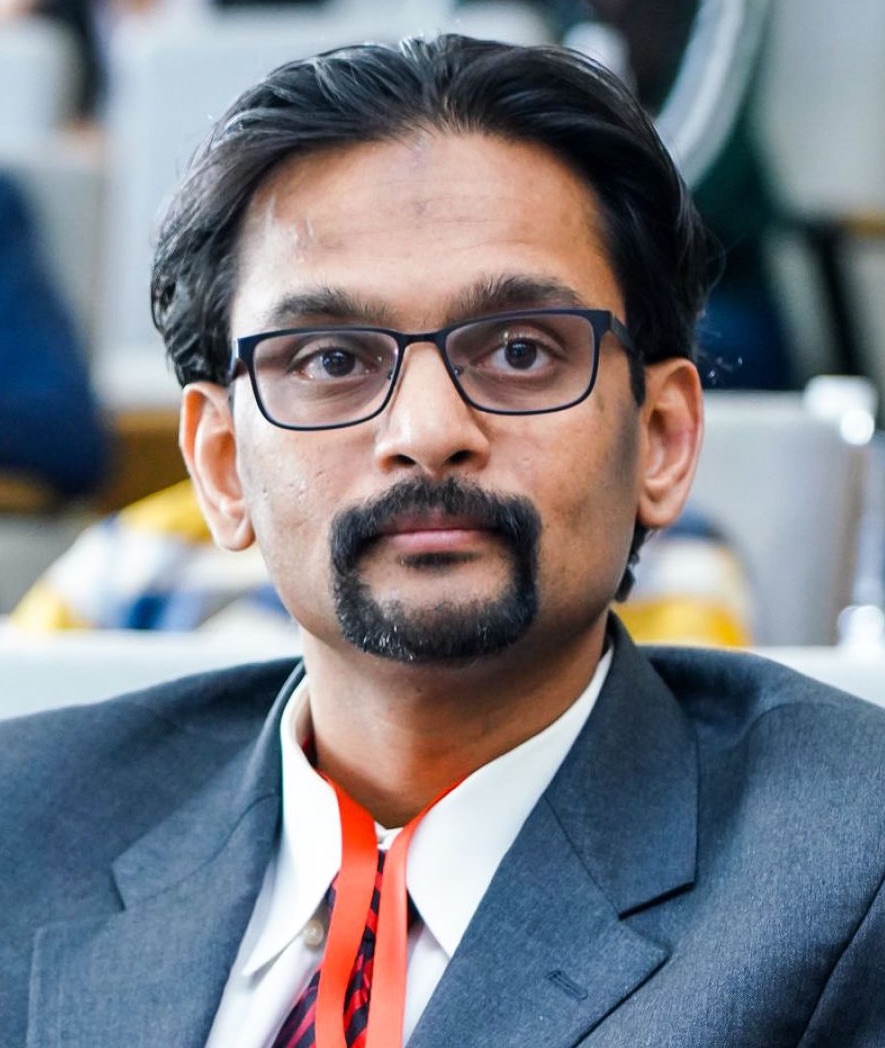Biodesign Institute announces new center devoted to advancing revolutionary biomaterials

The new Biodesign Center for Biomaterials Innovation and Translation will pursue studies in an interdisciplinary field involving collaborations between researchers in materials science, engineering, biology, drug delivery, regenerative medicine, tissue engineering and regulatory affairs. The field is driven by a need for new materials that are safe, effective and compatible with the human body.
Graphic by Jason Drees
The Biodesign Institute at Arizona State University has recently founded the Center for Biomaterials Innovation and Translation. The new center is dedicated to an exciting, emergent field, poised to transform therapeutics, implants, drug delivery vehicles, imaging contrast agents, surgical tools and biosensors.
The center will be directed by Kaushal Rege. In addition to his new appointment with the Biodesign Institute, Rege holds the position of Fulton Faculty Impact Professor at the School for Engineering of Matter, Transport, and Energy, part of the Ira A. Fulton Schools of Engineering. He is also a member of the graduate faculty of chemical engineering, biomedical engineering, biological design, materials science and engineering, and the School of Molecular Sciences. Additionally, he chairs the biological design graduate program at ASU.
“Innovations in biomaterials underscore several transformative advances in health care,” Rege says. Our new center, CBIT, will work closely with other centers at the Biodesign Institute and clinicians to develop new technologies that can be translated for improving outcomes in human health.”
Biomaterials innovation and translation is a profoundly interdisciplinary field, involving collaborations between researchers in materials science, engineering, biology, drug delivery, regenerative medicine, tissue engineering and regulatory affairs. The field is driven by a need for new materials that are safe, effective and compatible with the human body.
Researchers and engineers in this scientific space work to design materials with specific properties, such as biocompatibility, mechanical strength and degradation rate, to meet the needs of different medical applications. They also study how biomaterials interact with the body and how they can be used to promote tissue regeneration and repair.
One of the most significant innovations has been the development of materials designed to degrade over time, which can be useful in applications such as drug delivery and tissue engineering. The use of 3D printing has also been transformative, enabling researchers to fabricate custom-made biomaterials that can be precisely deposited in specific patterns and shapes, allowing for the creation of complex structures that are tailored to individual patients' needs. Biomaterials are also being explored for their potential to regenerate damaged tissues such as cartilage and bone, and to create new organs.
Kaushal Rege will direct the newly formed Biodesign Center for Biomaterials Innovation and Translation. Photo courtesy Biodesign Institute/ASU
Rege is ideally suited for the Biodesign Institute’s continuing efforts to advance pathbreaking science. During his 15-year tenure at ASU, he has demonstrated an impressive track record of securing funding from diverse sources, including the National Institutes of Health, National Science Foundation, Defense Threat Reduction Agency and the Mayo Clinic Center for Regenerative Medicine, among others. His pioneering research in developing biomaterial and nanomaterials for tissue repair and therapeutic delivery has resulted in significant advancements in repairing ruptured intestines, colorectal tissue and skin injuries.
After earning his PhD in chemical engineering from Rensselaer Polytechnic Institute, Kaushal conducted postdoctoral research at Massachusetts General Hospital and Harvard Medical School in Boston. His research has been widely recognized and featured in various leading science and engineering publications, including Scientific American. He has authored over 100 peer-reviewed publications, written six book chapters and holds eight U.S. patents. He also serves as an associate editor of the journal Bioengineering and Translational Medicine (Wiley) and will serve as Chairperson of the Musculoskeletal Tissue Engineering Study Section at NIH starting October 2023.
Kaushal's achievements have earned him several prestigious awards, including selection as a fellow of the American Institute of Medical and Biological Engineers in 2017 and the New Investigator Award from the American Society of Photobiology in 2014. He also received a Young Investigator Award from the Defense Threat Reduction Agency for his contributions to developing smart materials for sensor technology used in military intelligence and defense systems.
Since joining the Biodesign Institute, Rege has already begun collaborating with researchers across the institution. The new center is the latest step on the Biodesign Institute’s path to deliver nature-inspired scientific innovation for the betterment of human health, community safety and global sustainability.
More Science and technology

Cracking the code of online computer science clubs
Experts believe that involvement in college clubs and organizations increases student retention and helps learners build valuable…
Consortium for Science, Policy & Outcomes celebrates 25 years
For Arizona State University's Consortium for Science, Policy & Outcomes (CSPO), recognizing the past is just as important as…

Hacking satellites to fix our oceans and shoot for the stars
By Preesha KumarFrom memory foam mattresses to the camera and GPS navigation on our phones, technology that was developed for…
